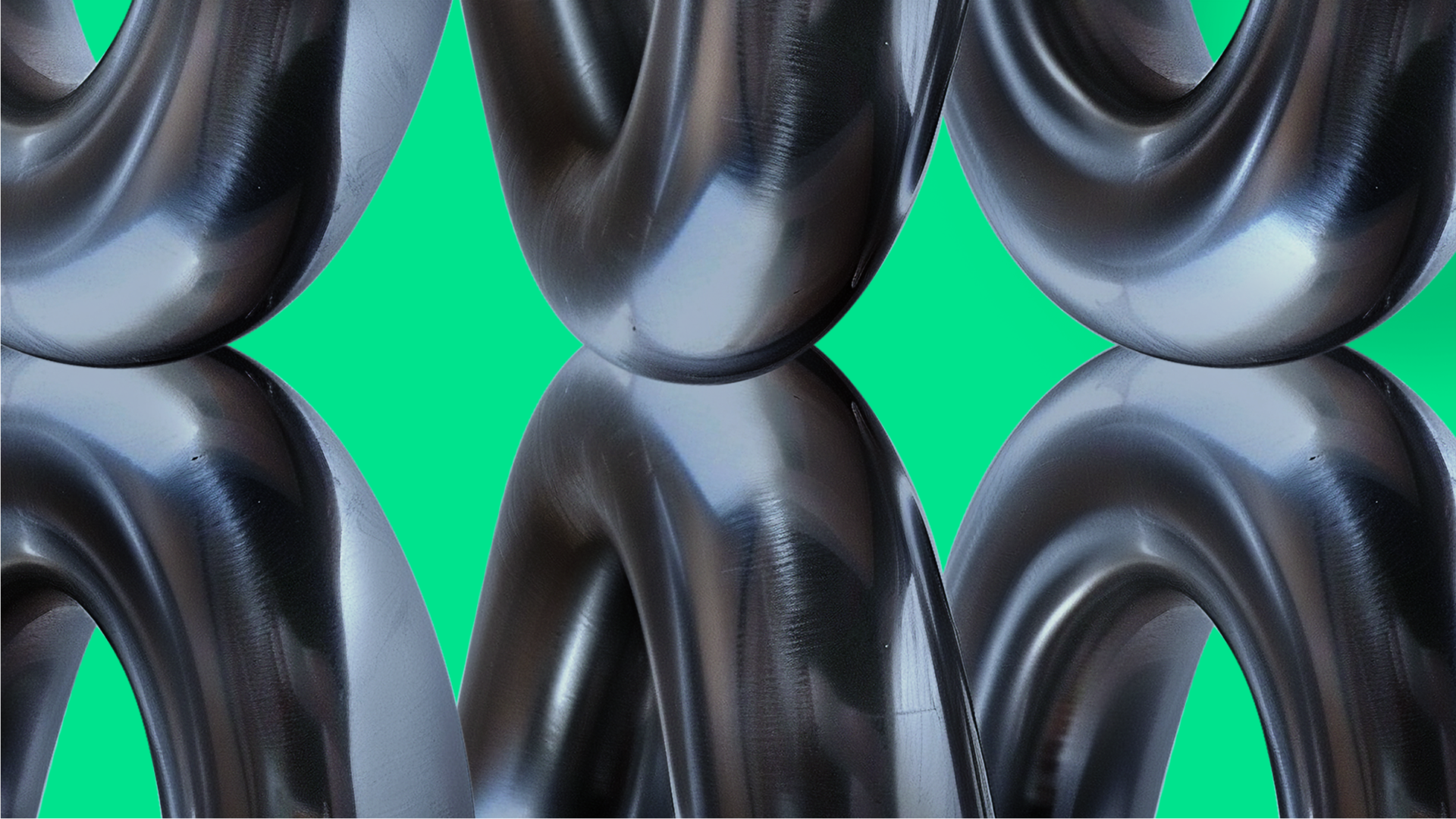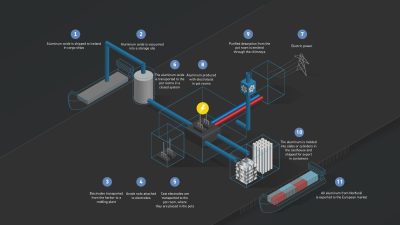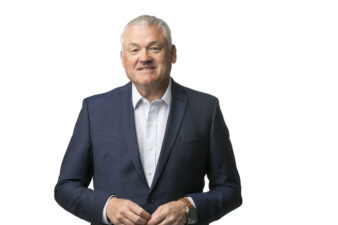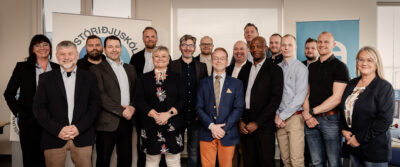
Norðurál
Norðurál Grundartangi ehf. operates an aluminum plant at Grundartangi that produces aluminum and aluminum alloys for the international market. The company has an operating license to manufacture up to 350,000 tons of aluminum each year. The company has facilities at Grundartangi in West Iceland and Skógarhlíð in the capital, Reykjavík.
Norðurál Grundartangi ehf. is 100% owned by Norðurál, which is 100% owned by the Century Aluminum Company, a company registered in the United States. The Board of Norðurál Grundartangi is responsible for maintaining proper organization and operations, development of long-term objectives, and monitoring the day-to-day operations of the company.

Statement from the Managing Director
Norðurál is one of the ten largest companies in Iceland, whether in terms of turnover or performance, and we are proud to be a leader in our field and to actively participate in the development of Icelandic society. Norðurál’s export value amounted to ISK 109 billion in 2024. Norðurál’s share of Iceland’s total export value is therefore over 11%. Nearly 50 billion ISK or about 45% of export values was paid to Icelandic parties in the form of public levies, salaries, and procurement from domestic suppliers and service providers.
Company performance is not only measured in terms of monetary value. We want to create value in a sustainable and responsible way for the future and with a positive impact on our communities. We have been actively involved in development and innovation projects seeking methods for capturing and sequestering or harnessing the CO₂ emitted in the course of Norðurál’s aluminum production. In 2024, Norðurál and Carbon Iceland entered into a partnership to explore the possibility of utilizing CO₂ from Norðurál’s operations to produce green fuel. Whether this will come to fruition only time will tell, but we continue to relentlessly seek ways to reduce emissions and are still aiming for carbon-neutral aluminum production at Grundartangi.
In 2024, production of aluminum billets began in Norðurál’s new production line. These are cylinders made of aluminum that are used in the production of many types of items produced by extrusion. Billets are in high demand by European customers, as aluminum is a key element in the production of electric cars, aircraft and sustainable buildings. By moving into billet production Norðurál is moving closer to our customers’ needs and also bringing the added value to Iceland. By using power produced in Iceland, our billet production has a significantly smaller carbon footprint than if it were to take place abroad. Furthermore, estimated power savings are around 40%. This project was on our drawing board for a long time and the implementation took more than two years, which required cooperation and patience from employees.
A company is nothing more than the people who work there. All preparation, production and performance are based on individuals working together towards a common goal. Operational improvements, good communication and the company’s success are largely based on the people who work there. And it can truly be said that we at Norðurál are fortunate with our employees.


The year 2024
Export value
Norðurál’s export value amounted to ISK 109 billion. Norðurál’s share of Iceland’s total export value is thus 11.4%. Payments to domestic parties were almost ISK 50 billion, or about 45% of the company’s export value.
Key figures from operations in 2024
Reduced emissions
When Norðurál is in the process of renewing equipment, electrically operated equipment is always a preferred choice. A new production line for aluminum billets that was implemented during the year is a prime example, as no fossil fuels are used for its operation. There are therefore no greenhouse gas emissions from the line’s operation. Usually gas or oil is used in this kind of production.
Value-added production
We started production of aluminum billets in a new production line in the casthouse. These are produced for buyers in Europe and will mainly be used in the production of electric vehicles. The project was fully financed in Iceland and due to the positive environmental impact, it met the criteria for green financing.
Graduation from the Norðurál School of Heavy Industry
Fifteen students graduated from the advanced study program at the Norðurál School of Heavy Industry, and this is the fifth group to graduate from the advanced studies. The school has been in operation since 2012 and 177 students have graduated from it. The school’s purpose is that the company’s employees who complete the program gain greater job satisfaction and self-confidence with increased skills, knowledge and understanding of key processes in the safe and efficient production of aluminum. At the same time, the program increases value creation, strengthens the company’s competitive position and makes the workplace more desirable.

Carbon sequestration in forestry
Norðurál has purchased 1,100 certified Icelandic carbon credits from Yggdrasil Carbon. The credits derive from YGG’s project at Arnaldsstaður in Fljótsdalur, East Iceland, where spruce, pine, and poplar were planted as part of the project in the summer of 2022. The carbon credits will not be active until measurements show real sequestration in the forest. It is assumed that Norðurál’s credits will be gradually actualized until the year 2072. One certified carbon credit is created when one ton of carbon dioxide, which has been measured using approved methods and certified as such, is removed from the atmosphere or is prevented from entering the atmosphere. This is the first certified carbon sequestration project in Iceland.
Renewed collaboration agreement
Norðurál and Faxaflóahafnir (the Associated Icelandic Ports) renewed a collaboration agreement regarding Norðurál’s operations in the Grundartangi port area. The two companies have had a sustainable and trusting collaboration, or ever since Norðurál started operations in 1998.
The Equality Scale Award
Norðurál received the 2024 Equality Scale Award (Jafnvægisvogin) along with 130 other companies, institutions and municipalities. This is the fourth time that Norðurál has received the award. The Equality Scale is a dynamic project administered by the Association of Businesswomen in Iceland (FKA) which promotes an equal share of men and women in senior management.
Extension
Norðurál extended its collaboration agreements with sports clubs ÍA and Valur. The new agreements reflect Norðurál’s focus on supporting dozens of community projects, both large and small. Our main community projects are precisely related to sports, children’s and youth activities, and preventive measures. We are grateful to our neighbors in Hlíðarendi (Valur) and Akranes (ÍA) for their good cooperation and look forward to the coming years of football.
Strategy, business model and value chain SBM-1
Norðurál has a clear strategy and business model based on responsible aluminum production with a low carbon footprint. Norðurál complies with our sustainability policy and Icelandic laws and regulations. The strategic priorities are in line with international standards and are reflected in the company’s goals in energy efficiency, waste management and workplace safety.
Norðurál uses 100% renewable energy from Icelandic energy companies and emphasizes environmentally friendly production and long-term cooperation with customers who demand responsible resource management. This gives the company the opportunity to support the circular economy and sustainability in the construction industry, car manufacturing and electricity transmission.
The value chain is shaped by environmental and social responsibility requirements, and sustainability is integrated into strategy planning, supplier agreements and customer service.
The company works systematically to:
- Minimize environmental impact, especially carbon emissions (with an emphasis on Scope 1, 2 and 3),
- Ensure the safety and well-being of employees and communities ,
- Produce aluminum with a low carbon footprint,
- Have a reliable and transparent partnership with suppliers and customers.
Strategy – Interests and views of stakeholders SBM-2
Creating long-term value in a sustainable and responsible manner, for the long term and with a positive impact on society, is at the heart of Norðurál’s corporate social responsibility. Our communication with stakeholders is based on a commitment to transparent and honest interactions, and this is an important part of the company’s continued success. Cooperation and procedures, including the frequency of cooperation, depend on the stakeholders and their nature. Communications take place according to a communications plan, and cooperation and construction projects are recorded in Norðurál’s management systems. Our suppliers and contractors must comply with Norðurál’s safety and environmental standards and code of ethics. We appreciate feedback from stakeholders and strive to respond to all queries.
For further information, please see S3-1, S3 SBM-2 and S3-2 under People and community
Material impacts, risks and opportunities and their interaction with strategy and business model SBM-3
The company’s operating results depend on the international market price of aluminum, which can be volatile and dependent on many factors beyond the company’s control. The sales price of aluminum depends on three components: (i) the basic price, which is based on the listed LME price; plus (ii) a premium that is added to the price when selling to Europe; and (iii) any value-added mark-up. Each of these three components has its own variability drivers. The price of aluminum is determined, among other things, by global supply and demand, inventory levels, speculation by market participants, what is being produced in global markets, political and economic conditions, and raw material and other production costs. These factors can be highly variable and lead to significant fluctuations in market prices.
Deteriorating global economic conditions may adversely affect demand and thus the price of aluminum. Any uncertainty, including escalation of regional conflicts, major public health issues or other unexpected events could lead to a decline in demand for aluminum. Such events may also cause disruption in operations, supply chain or affect the availability of labor.
A decrease in aluminum prices could result in a curtailment in production or actions to cut production costs, including the postponement of investment and maintenance projects and possible layoffs. Such measures could have an adverse effect on the company’s liquidity position, the ability to access loan capital and its operating results.
Electricity is one of the main factors in aluminum production costs. Consequently, the availability of electricity and its competitive pricing are important to Norðurál’s operations. Disruptions in electricity supply have a significant impact on the company’s operations and operating results.
Whereas payroll costs, tax payments and certain other costs are denominated in Icelandic krónur, the majority of our revenues are denominated in U.S. dollars. All these factors assume normal operations of the company. Adverse changes to these factors may have a considerable effect on the company’s operating results.
Whereas payroll costs, tax payments and certain other costs are denominated in Icelandic krónur, the majority of our revenues are denominated in U.S. dollars. All these factors assume normal operations of the company. Adverse changes to these factors may have a considerable effect on the company’s operating results.
Value chain challenges
- High carbon footprint of some inputs, particularly carbon anodes and bauxite.
- Technical and financial barriers to implementing circular solutions.
- Increasing demand from governments and buyers for transparency and traceability in the supply chain.
Value chain opportunities
- Growing demand for low-carbon aluminum, especially in Europe.
- Increasing value of traceable and environmentally friendly production – potential for green pricing.
- Increased use of recycled raw materials and development of eco-friendly production methods.
- Digital transformation and innovation, including the introduction of digital monitoring systems that improve measurements, traceability and efficiency.
Norðurál is working systematically to minimize the impact and utilize the opportunities through:
- A clear policy for carbon-neutral production using 100% renewable energy,
- Implementation of improvement projects in operations and processes (including recycling),
- Collaboration with suppliers on responsible purchasing and reduction of Scope 3 emissions,
- Defined measurable objectives and integration of sustainability into operational strategy and risk management.
